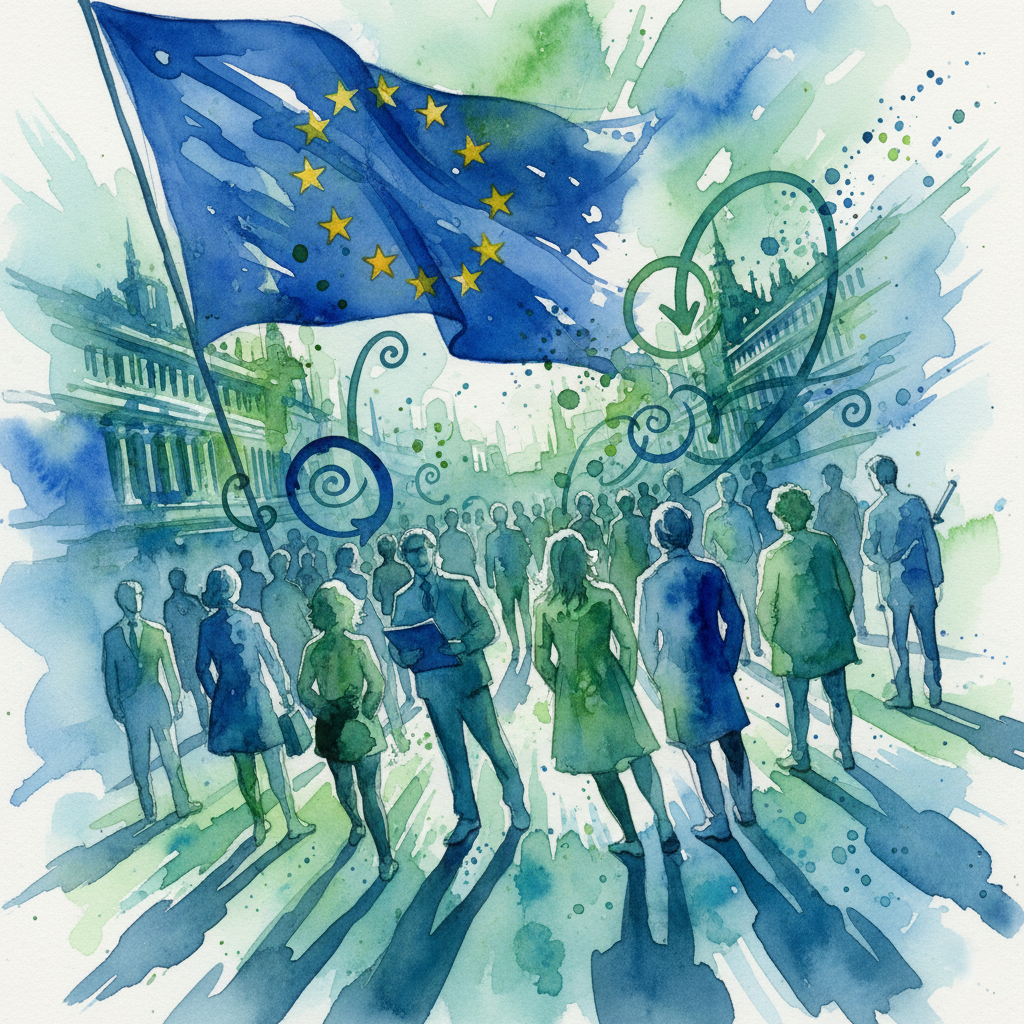· 4 min read
Is Democracy Broken? Time to Explore New Models
For decades, representative democracy has been presented as the gold standard of governance. Yet, a growing wave of disillusionment is sweeping across the globe, eroding public trust in the very institutions designed to serve us. From the streets of Paris to the town halls of Prague, citizens are voicing their discontent, questioning the efficacy and fairness of traditional representative systems. It’s time we seriously consider exploring alternative, more participatory forms of democracy.

The evidence of declining trust is stark. Numerous studies consistently demonstrate a significant decrease in public confidence in governments, parliaments, and political parties across many Western democracies. For example, the OECD Trust in government reveals declining trust in government across numerous countries, including significant drops in several European nations in recent years. Similarly, data from the Pew Research Center shows a long-term trend of decreasing public confidence in political institutions in the US, often correlated with increased political polarisation and dissatisfaction with the political process. These findings aren’t just anecdotal; they fuel political polarisation, weaken civic engagement, and ultimately threaten the stability of our societies. The reasons are complex and multifaceted, ranging from perceived corruption and elite capture to a growing sense of powerlessness and disconnect between citizens and their representatives.
Many events in Europe and the world highlight this crisis. The 2023 French protests against pension reforms vividly illustrate widespread frustration with established political processes. Millions took to the streets, feeling their voices were unheard and their concerns disregarded by the government. The scale and intensity of these protests, alongside significant public dissatisfaction evidenced in polls, highlight a deep-seated dissatisfaction with the responsiveness of the political system. Furthermore, the rise of populist movements across the continent, often fueled by anti-establishment sentiment, signals a deep-seated yearning for change. The success of the Brothers of Italy in forming a government in 2022, with its roots in post-fascist politics, showcases how traditional party systems are failing to address the needs and anxieties of a significant portion of the electorate in some countries. This illustrates a broader trend of electoral volatility and a rejection of mainstream political parties.
But simply lamenting the current state of affairs is insufficient. We need to actively explore alternative models to represenative democracy that empower citizens and foster greater participation. This isn’t about discarding democracy altogether; it’s about revitalizing it. We must consider:
Citizen Assemblies and sortition: Randomly selected citizens deliberating on specific policy issues, providing informed recommendations to elected officials. Researchsuggests these assemblies can foster more inclusive and representative decision-making, leading to increased public trust and better policy outcomes.
Direct Democracy: Giving citizens the power to directly decide on policy issues through referendums, initiatives, and other forms of direct voting. While offering a high level of citizen engagement, direct democracy is expensive to implement effectively on a large scale and may struggle with complex policy issues and fail victim of populist narratives.
Liquid Democracy: A hybrid system combining direct democracy with representative elements, allowing citizens to delegate their voting power to other individuals they trust. This could help bridge the gap between citizen engagement and the complexities of modern governance. Initial studies suggest it has the potential to increase participation and representativeness compared to traditional systems.
Enhanced digital participation: Utilising technology to improve transparency, facilitate citizen input, and enhance public discourse, like online platforms for policy deliberation and participatory budgeting initiatives. The increasing use of digital technologies in political processes offers opportunities to enhance engagement and participation, although careful consideration must be given to mitigating issues of digital inequality and ensuring accessibility for all citizens.
Circular Democracy: A model that emphasizes continuous feedback loops and more iteractive decision-making. This approach aims to create a more dynamic and responsive system where citizens can regularly contribute to policy development and implementation by channeling the people powered campaigns organised by civil society organisations and facilitating elected politicians to reply to the citizens message.
The last model is both very old and very new and its practical application requires further exploration and funding. It relies on two observations: the lack of trust is partly fed by a lack of information, so having regular campaigns challenging decision makers and many citizen participating would increase the awareness of what the insitutions do in more details; and a meta analysis show that if the lack of trust does decrease vote turnout, it hasn’t affected informal participation, like online campaigns.
The challenge lies in experimenting with these models, learning from their successes and failures, and adapting them to the specific contexts of different nations. The future of democracy doesn’t lie in clinging to outdated models; it lies in embracing innovation, experimentation, and a commitment to fostering genuine citizen participation. Let’s start using them.



